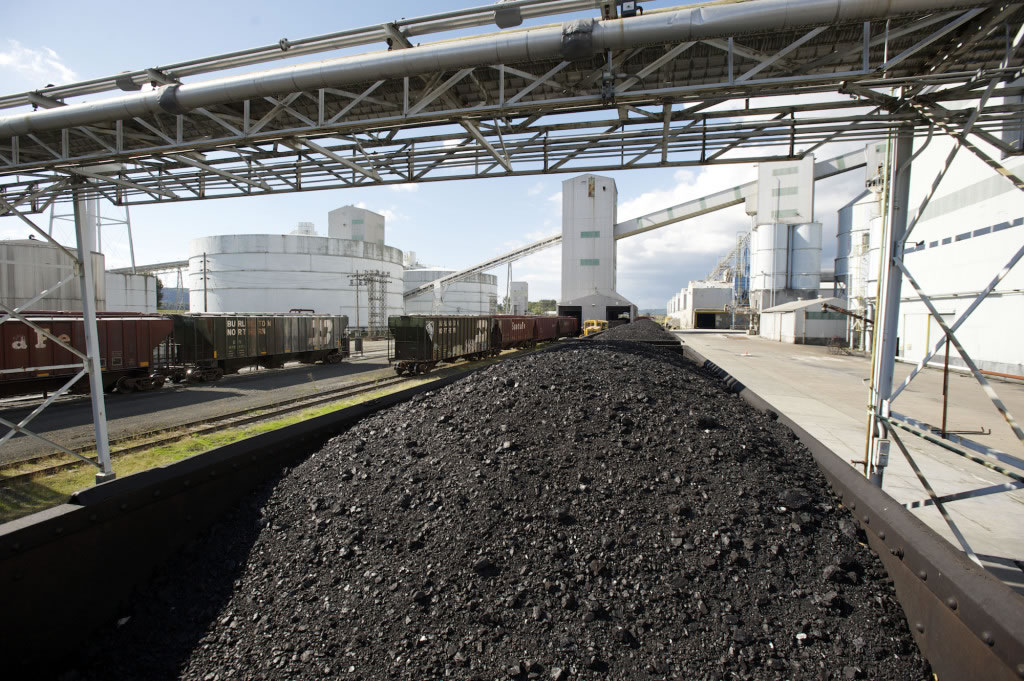LONGVIEW — In a potentially fatal blow to the Longview coal project, a federal judge Tuesday upheld the state of Washington’s denial of a key water quality permit for the $680 million export dock.
Judge Robert Bryan of U.S. District Court in Tacoma dismissed claims by Lighthouse Resources and BNSF Railway that the permit denial preempted the Interstate Commerce Commission Termination Act and the Ports and Waterways Safety Act.
Bryan found the companies failed to prove that the federal acts should have barred the state Department of Ecology from denying the water permit.
Millennium began the permitting process for the coal terminal in 2012. The state denied its application for a water quality certificate in September 2017, pointing to “significant unavoidable adverse impacts” outlined in the Final Environmental Impact Assessment for the project. The state also said it didn’t have reasonable assurance that the terminal would meet applicable water quality standards.
Lighthouse Resources sued Gov. Jay Inslee’s administration over the decision in January. Six coal-producing states — Montana, Wyoming, South Dakota, Utah, Kansas and Nebraska — intervened in the suit on behalf of Lighthouse and the railroad, alleging that Washington was blocking interstate commerce by blocking the project.
Six other states — California, Maryland, New Jersey, New York, Massachusetts and Oregon — entered the suit on behalf of the state Department of Ecology, saying the state has a right to regulate its environment.
Bryan’s decision is another in a string of setbacks for Millennium, which is in other legal tangles with the state over the project. In addition, last month the company cut 15 percent of its Longview staff and announced the retirement of its CEO, Bill Chapman.
Millennium declined to comment because Lighthouse filed the suit. Lighthouse officials did not return requests for comment Tuesday.
The terminal would be the largest on the U.S. West Coast and would ship 44 million tons of Rocky Mountain coal to Asia, requiring eight round trips to the terminal site at the old Reynolds Metals Co. aluminum plant. Millennium says it would create 1,000 construction jobs to build and about 130 workers to operate at full development.
A coalition of environmental groups that include Washington Environmental Council, Climate Solutions, Friends of the Columbia Gorge, Sierra Club, and Columbia Riverkeeper, represented by Earthjustice, intervened in the suit on behalf of the state Department of Ecology.
“One by one, the courts continue to knock out Millennium’s challenges” said Kristen Boyles, an Earthjustice attorney representing the conservation groups. “Simply put, the state’s one permit denial for one private hedge-fund backed corporation did not violate any law, let alone federal law.”
Jasmine Zimmer-Stucky, co-director of the Power Past Coal coalition noted in a prepared statement that the project has endured repeated legal setbacks.
“The coal company has racked up multiple denials from state and local agencies, and a committee of local residents recently concluded that the coal terminal should not be built based on its harmful health impacts alone. Now its hope of overturning states’ rights in order to build the project is narrowing. It’s time for Millennium to see the writing on the wall and end its coal terminal scheme.”
In Tuesday’s order, Bryan found that Lighthouse failed to prove that overturning the state’s decision would remedy its problem. He noted that the state has other grounds for denying the permit apart from the project’s impact on rail and vessel traffic.
Even so, Bryan found that Interstate Commerce and Waterways Acts do not apply in this case. Activities at the proposed coal terminal aren’t considered work done by a rail carrier and the state’s decision not to issue a water quality permit was not an attempt to regulate vessel traffic or navigation on the Columbia River, Bryan concluded.
The case also originally challenged the state Department of Natural Resources’ denial of a sublease of state-owned aquatic lands to build a second dock at the proposed terminal site. Those claims were dismissed in October.
Judge Bryan’s decision means Millennium how has lost two major legal battles in its effort to build the terminal.



